
mlcly-bloo
154 posts
Latest Posts by mlcly-bloo

OP: Xiaotianquan哮天犬(The Howling Celestial Dog) suited up today I'm dead













evil! ornery, scandalous, and evil! most definitely!
Three-knife hairpin 三刀簪 (one for the country, one for the family, and one for oneself) was a popular headpiece among women in the city of Fuzhou, Fujian province.
Also known as "Three Hairpins” it consists of three small swords worn like hairpins, mostly made out of silver or white copper, and engraved with patterns.
There are various theories about the origin of the Three-Knife hairpin. The most popular one claims that it evolved from small sharp weapons worn by women during the Ming Dynasty in order to defend themselves against Japanese pirates raiding China’s coastline, by killing their enemies, or even committing suicide.


In June 2024, the three knives were selected as an intangible cultural heritage of Fuzhou, and more people became aware of this traditional clothing culture.
A little girl who knows her stuff..
Part 2: shape, style, and length with femme styles!







Okay I JUST realized I never posted these on here—- BUT BASICALLY, about a year and a half ago I started doing these experimental black hairstyle posts that were threads long on Twitter, to give artists a source of inspo for their black ocs whose hair they wanted to try something new with! There’s more to black hair than just the selected styles portrayed in media, and I thought it would be fun to show people how much texture, shape, fades, length, and style can be combined when drawing black hair—-cause it’s a kind of manipulation our hair can do irl! The OG posts were lost with the hacking of my original Twitter account (@/bagels_donuts) but I’ve since reuploaded the whole thread to my new Twitter (@/ItsDonutsFR)! I hope artists on tumblr find these useful, sorry it took me so long to post them here😭🙏🏾 I’ll upload them all in parts!








Part 1: Long masc hairstyles + playing with fades

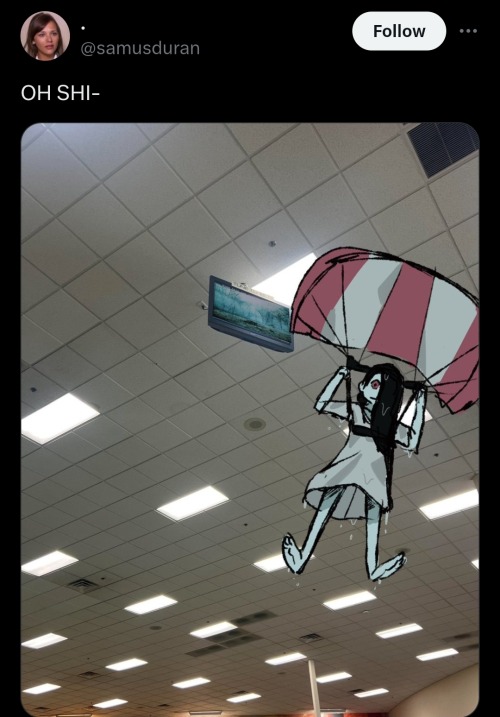

Re: this ask (I accidentally deleted it but had taken a screenshot, thankfully ^^;;)
I don't know historically how they tied their skirts, but currently there are multiple ways people tie their skirts :D
Most Hanfu shops sell 2 types of skirts when it comes to the waist ties:
1) With a hole provided for the tie to slide through (this one seems more common nowadays) 2) Without the hole provided
Skirts with the waist-tie hole provided are a bit easier as it allows the tie to wrap around your waist and stay in place nicely:
(Video src: 一对小玉镯)
If you have a skirt without the hole provided, I find this method the easiest to make it look nice:
(Video srcs: 子月儿- )
As for ways to actually tie the tie, here area a few common methods (the last 3 aren't very common, but they add a bit of a flare). I'm lazy, so I usually just do a simple butterfly tie (nowhere near as neatly as this video shows), and I tend to slide it to the side so it's not clearly seen. Some people put the knot front-and-centre so it's part of the outfit, all up to you how to wear it :D
(Video src: 零青子 , ENG subs by me but it's easier to just watch the video xD)
Lofter tutorial
Here’s a short tutorial on how to sign up and navigate Lofter, which is like the Chinese version of Tumblr! It’s not as popular as Weibo, but you can find a variety of Chinese artists there. Anyway you can choose to use either the app or the site ->
APP TUTORIAL
Firstly just download the app from your app store

If you are using the app to register, you will come to this page:

Click 注册 and it will lead to this:

You can register an account using your WeChat/ QQ/ Weibo account (or register using a Chinese phone number, which I assume all of us don’t have). I registered using WeChat, just click on the icon and your account will be set up! After that just key in your username and you are done.
On the app page the icons at the bottom of the page are home, discover, news and your account. To search for the users/ tags you want to follow go to the discover page and click on search

Anyway things get kind of tricky here because most of the usernames and tags are written in Chinese… I’ll just link Djun’s and a few other artists’ blog below so you can check them out without typing in Chinese 😂😂
SITE TUTORIAL
Similarly if you use the Lofter site to register an account you will see a similar page (you can use your email to register an account if you are using the site!):

If you used WeChat to set up your account like me click on the WeChat button and there will be a QR code available for you to scan:

Just scan it with your WeChat app and you will be able to log in, you will be directed to your Lofter dashboard:

Anyway here’s Djun Lofter and a couple of other BL/interesting artists for you to check out if you are interested!
Djun
恶魔吃烤鸭
夜晚吃肉的衝動
王各各
宣哲
眠狼/ RDJlock
缄默症
Hope this helps!

"Father! Your flesh and blood, I give it all back! I will burden you no longer!"
Fans of Nezha 2025, please watch Nezha 1979 (哪吒闹海) 🥺


collecting posts of this type
The name of the fantastic cosmos is Blue Sapphire.



refseek.com

www.worldcat.org/

link.springer.com

http://bioline.org.br/

repec.org

science.gov

pdfdrive.com

Compilation of all my Hanfu and Guqin posts 😊
(Updated April 17, 2025)
Hanfu Posts
Warring States/Qin/Han Dynasties - Straight-edged robe (直裾) - Wrap around robe (曲裾) - Layering + undergarment pants - Straight sleeved straight-edged robe (直袖直裾) - Fish-tail straight-edged robe (鱼尾直裾) - Mesh straight-edged and wrap-around robes (素纱直裾/曲裾) - Men's hanfu in Han dynasty (两汉男汉服)
Weijin + North/South Dynasties - Ruqun (襦裙) - Ruqun (襦裙) pt. 2 - Liangdang (裲裆) - Ru vs. Xiyi (襦 vs 褶衣) - Slim-arm wide sleeve Ru and Xiyi (窄臂大袖 - 襦和褶衣) - Quling inner garment (曲领中衣) - Half sleeve + knee covering (半袖+蔽膝) - North Wei (Xianbei tribe) large collared long robe (北魏(鲜卑族)大襟长袍)
Sui/Tang/Five Dynasties - Sui + early Tang dynasty hanfu - Early Tang hanfu layers - Men's round-collared robes - Men's half-sleeve (半臂/半袖) - Golden era Tang shirt + skirt (盛唐衣衫+褶裙) - Vest, shawl, outer jacket (背子,帔子,披袄) - Golden era Tang hanfu layers - Wide-sleeved ruqun in Tang (唐朝大袖襦) - Mid-Tang shirt + long robe (中唐衫+长袍) - Late-Tang/FIver dynasties hanfu - Buddhist donors hanfu/Dunhuang Mogao Caves (供养人/敦煌)
Song Dynasty - Popular style for Song; shan, ao, moxiong tops (衫,袄,抹胸) - Long shan/ao (beizi) (长衫/袄 (褙子)) - Half-sleeve shan/ao (半袖衫/袄) - Men's criss-cross collared shan/ao (交领衫/袄) - Men's outer robe (beizi/褙子)
⋅•⋅⋅•⋅⊰⋅•⋅⋅•⋅⋅•⋅⋅•⋅∙∘༓∘∙•⋅⋅⋅•⋅⋅⊰⋅•⋅⋅•⋅⋅•⋅⋅•⋅
Hanfu videos
Tang dynasty hanfu
Weijin/North-South dynasties hanfu
Eyebrow changes through the dynasties
Men's hanfu through the dynasties
Curvy Tang ladies :D
Grandpa giving out flowers
Tang woman visiting museum
Men's Ming dynasty hanfu layers
Tang dynasty hanfu + modern dancing
Ming court advisors "friendly" debate
Ming dynasty grandma with granddaughter
⋅•⋅⋅•⋅⊰⋅•⋅⋅•⋅⋅•⋅⋅•⋅∙∘༓∘∙•⋅⋅⋅•⋅⋅⊰⋅•⋅⋅•⋅⋅•⋅⋅•⋅
Guqin Posts
Guqin introduction
Workshop/Studio Tour
Lacquer allergy experience Part 1 (scroll down) / Part 2 / Part 3 / Part 4 / Summary
Baby Guqin + giveaway
Making Guqin silk strings
Making Guqin - Part 1 (step 1 - scroll to bottom for video) - Various steps of making Guqin - Part 2 (steps 2-5)
Playing Guqin - Part 1 (Gou and Tiao) - Part 2 (Gou and Tiao pt 2)
⋅•⋅⋅•⋅⊰⋅•⋅⋅•⋅⋅•⋅⋅•⋅∙∘༓∘∙•⋅⋅⋅•⋅⋅⊰⋅•⋅⋅•⋅⋅•⋅⋅•⋅
Asks
Pattern for undergarment pants
Qing dynasty clothing
Iconic hanfu of each dynasty
Historical mourning clothes + costumes in Chinese period dramas
Costumes in wuxia/xianxia (ex. Untamed and Word of Honor)
Tang Hezi undergarment
Love Game in Eastern Fantasy drama: Esther Yu hairstyles
Favourite historical dramas
Maid outfits
Tang hanfu patterns
Korean traditional outfit
Guqin introduction (English book)
Foot binding
Flourished Peony hanfu (国色芳华汉服)
Hanfu overlap from one dynasty to another
Chinese muji (geta) (木屐)
Guqin strings
⋅•⋅⋅•⋅⊰⋅•⋅⋅•⋅⋅•⋅⋅•⋅∙∘༓∘∙•⋅⋅⋅•⋅⋅⊰⋅•⋅⋅•⋅⋅•⋅⋅•⋅
Other
Romance of the Three Kingdoms etiquette MV (三国演义礼仪 MV)
Hanfu revival movement overview
Tang Ming Huang TV series rec + MV (唐明皇推荐+MV)
Hanfu books recommendation: "汉晋风流" (Romance/Elegance of Han and Jin ) "唐之雍容" (Grace of Tang)
Hanfu book recommendation 2: 华夏衣橱 (Huaxia Wardrobe)
Giveaway 1 (completed)
Me too girl tf

Hanfu in Components: Sleeve Shapes (pt5)
navigation: hanfu in components 1 2 3.1 3.2 4 5 ...
Review on sleeve structure (接袖/jie1 xiu4/sleeve connection) from part 2, structure conventions:
"Hanfu sleeves, on the other hand, are never connected at the armpit—they are connected halfway down the arm. In other words, the piece of fabric that forms the body extends to also cover the upper arm part of the sleeve. The actual sleeve piece is connected to the body at the bicep/elbow area via a flat seam. (In the case of half- or no- sleeve garments there might just not be a separate sleeve piece.)"
Sleeve pieces are also draped over the shoulder with no shoulder piece. Most sleeve shapes fall very roughly into the categories of小袖/xiao3 xiu4/'Small Sleeve' or 大袖/da4 xiu4/'Large Sleeve' types, though this can vary, and some sleeve shapes can be regarded as kind of a middle size, but there are so many ways to categorize them (size? Popularity? Chronology?), so here they are in no particular order.
I'm not gonna use pictures of clothing on people with this one, mostly because the shape is really hard to discern when the fabric draped and folds as hanfu is wont to do. Instead you get my shitty handwriting and graph paper drawings. Sorry.
直袖 / ZHI2 XIU4 / STRAIGHT SLEEVE

Very basic straight sleeve. It's a rectangle. Usually narrow (30-10cm wide in my experience in the industry), but there are also straight sleeves that are super wide (Famensi pishan, various Song beizi). The main requirement is that the bottom sleeve seam is parallel to the shoulder line. Pretty much timeless.
窄袖 / ZHAI3 XIU4 / NARROW SLEEVE

Synonymous with 箭袖 / jian4 xiu4 / 'Arrow Sleeve.' Very similar to a straight sleeve, but the sleeve cuff is slightly narrower than the root, so the line made by the sleeve seam is slightly tilted rather than straight across. The cuff is usually between 20-10cm wide, and the root is usually under 30cm. If the cuff is more than twice the width of the root I would be more inclined to call it a feijixiu (see below), but there's some overlap between these categories. Also pretty much timeless, usually used for inner layers or dailywear.
More specific names may describe variations of narrow sleeves like 羊腿袖/yang2 tui3 xiu4/sheep's leg sleeve from the Song dynasty, a super-narrow form-fitted narrow sleeve.
飛機袖 / FEI1 JI1 XIU4 / AIRPLANE SLEEVE

Can be considered a type of 窄袖, with a straight but diagonal sleeve hem. The cuff is typically about half the width of the root; the root is usually at least 25cm wide in my experience. 'Airplane sleeve' is a modern colloquialism that became popular because the sleeve's shape looks like an airplane wing.
This is very specific to Song Dynasty women's wear (and Yuan Dynasty women's wear, if you consider Yuan Dynasty hanfu). The artifact directly supporting this sleeve shape is the Huangshengmu zhaixiu duanshan.
垂胡袖 / CHUI2 HU2 XIU4 / DROOPING SLEEVE

Mid-width sleeve usually characteristic of the earlier dynasties, from the earliest times up to the Wei/Jin dynasties. Characterized by a fairly wide sleeve root and a narrower sleeve cuff, with a curved belly-like shape. The midpoint of the sleeve may or may not briefly widen beyond the width of the root before narrowing back down at the cuff, giving it a 'drooping' appearance.
廣袖 / GUANG3 XIU4 / VAST SLEEVE

Catch-all term for extremely wide-cuffed sleeves, commonly known as 大袖/da4 xiu4/large sleeve. Usually has a root of at least 30cm and a sleeve opening of 60-120cm. Present throughout most dynasties in different forms, most often as formal outerwear (大袖衫)in the Tang, Song, and Ming Dynasties. The shape connecting the
Most guangxiu from the Ming Dynasty are 廣袖收祛/guang3 xiu4 shou1 qv1/closed vast sleeves, meaning that the front of the sleeve is closed, sewn up to a small opening for the wrist to come through.
窄臂大袖 / ZHAI3 BI4 DA4 XIU4 / NARROW-ARM LARGE SLEEVE

Mostly specific to the Northern & Southern Dynasties, though I've seen a couple Tang figurines with similar silhouettes. Has a fitted sleeve root typically under 30cm, sometimes as narrow as 15-20cm, that opens up after the elbow to a wide 60-120cm sleeve opening.
琵琶袖 / PI2 PA2 XIU4 / PIPA SLEEVE

Mostly specific to the Ming Dynasty, an iconic sleeve shape named for its resemblance to the shape of a Pipa instrument, a plucked string instrument sort of like a lute. The sleeve root is normally between 30-45cm, opening up slightly to a maximum width of between 35-65cm, and then curving smoothly back up to a sleeve cuff normally between 10-25cm. Can vary wildly in size—there are 'small' pipa sleeves and 'large' pipa sleeves, with the large ones normally being part of formal outerwear.
弓袋袖 / GONG1 DAI4 XIU4 / QUIVER SLEEVE

Also mostly specific to the Ming Dynasty, can be considered a Pipa sleeve that doesn't widen far beyond the sleeve root, instead curving back up gently towards the sleeve cuff. Sometimes there's a pleat made at the root of the sleeve to help with movement. Often seen as a more convenient alternative to the Pipa sleeve. The quiver here is referring to the bag you put arrows in (not the movement 'quivering') because the shape looks similar.
半袖 / BAN4 XIU4 / HALF SLEEVE
The name 'half-sleeve' is actually fairly misleading, because most 'half-sleeve' garments are either closer to 1/3 sleeve or 3/4 sleeves. The important thing to remember is that short sleeve garments are almost always outerwear—with some exceptions (Tang mens banbi for example) they're usually meant to be worn over a long-sleeved inner layer. Ming Dynasty half-sleeves tend to be closer to 3/4 sleeves, some reaching almost to the wrist, but because long-sleeved Ming Dynasty garments often extend past the fingertips by a significant amount, you still get a decent amount of layering.

Half-sleeves may or may not have a 接袖/jie1 xiu4/sleeve connection piece; the sleeve may just extend out from the main body piece if the fabric width allows for it. They may be curved or linear, slightly flared (as with garments worn over pipa sleeves for example) or straight across.
無袖 / WU4 XIU4 / SLEEVELESS
Why stop at reducing sleeve length—get rid of them completely! Almost every dynasty has their own vest-like garment, whether it's the Ming Dynasty's 比甲/bi2 jia3, the Song Dynasty's 背心/bei4 xin1, or the Tang Dynasty's 唐褙子/tang2 bei4 zi0. Some may have a very small sleeve connection piece to extend the shoulder line outwards. Having a curved arm opening with a narrow shoulder width is very uncommon before the Qing Dynasty but not completely unheard of.

Note: Sleeve Construction
Just so you can see how these pieces actually look in the context of hanfu construction: this is fairly similar to how modern sleeves are made. The sleeve piece is just a mirrored double of how the sleeve looks from the front, you cut the whole thing out, drape it over the shoulder and then sew the bottom together.



Ok I procrastinated on this post for weeks but it is finally done!!! There are definitely some sleeve shapes that I didn't list out here, but most other shapes can be described as variations on the most common ones. Shoot me an ask if there's a sleeve shape that you really want to know about and I'll add it, or if you're having trouble identifying one :)
navigation: hanfu in components 1 2 3.1 3.2 4 5 ...
smolweaving resources
a masterpost of resources to complement that post going around the other day with a glossary of several different kinds of small weaving. design your own potholder loom squares: https://friendlyloom.com/pages/potholder-design-wizard
make a pin loom: https://windsweptmind.com/2016/07/04/adventures-in-pin-loom-making-and-so-can-you/
warp a pin loom the regular way: https://adventuresinpinloomweaving.com/2018/09/21/choose-your-warping-method/
the diagonal way: https://howdidyoumakethis.com/square-pin-loom-speed-weaving/
fingerweaving
how-to: https://www.metismuseum.ca/fingerweaving/
another how-to: https://nativetech.org/finger/beltinstr.html
additional resources: https://jumaka.com/2019/03/finger-weaving/
tablet weaving
how-to: https://www.shelaghlewins.com/tablet_weaving/TW01/TW01.htm
another how-to: https://jumaka.com/2019/02/card-weaving/
personal favorite site for designing tablet weaving drafts: https://twistedthreads.org/
backstrap rigid heddle weaving
how-to: https://spinoffmagazine.com/backstrap-rigid-heddle-basics-get-weaving-handspun-bands/
3D printed rigid heddle backstrap loom parts:
https://www.thingiverse.com/thing:6141824
3D printed rigid heddles for band weaving:
https://www.thingiverse.com/thing:3999858
inkle loom weaving
how to build a loom from pvc and get started: https://littlelooms.com/a-free-guide-to-inkle-weaving/
inkle loom/rigid heddle backstrap pattern design: https://carolingianrealm.blog/PatternGenerator.php
😒






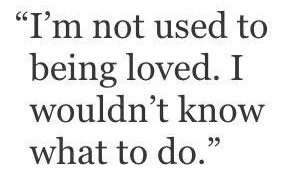

Isabel Allende, The House of The Spirits // Anne Carson, Red Doc> // F. Scott Fitzgerald, The Short Stories // Ocean Vuong, On Earth We're Briefly Gorgeous // 肉包不吃肉, The Husky and His White Cat Shizun // Bernhard Schlink, The Reader (trans. Carol Brown Janeway) // Heart Like Yours— Willamette Stone


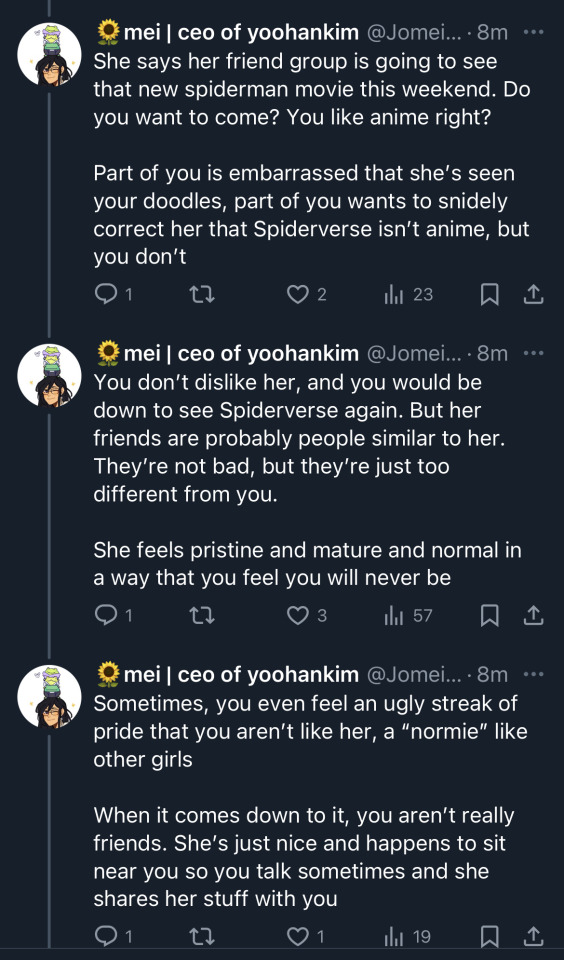




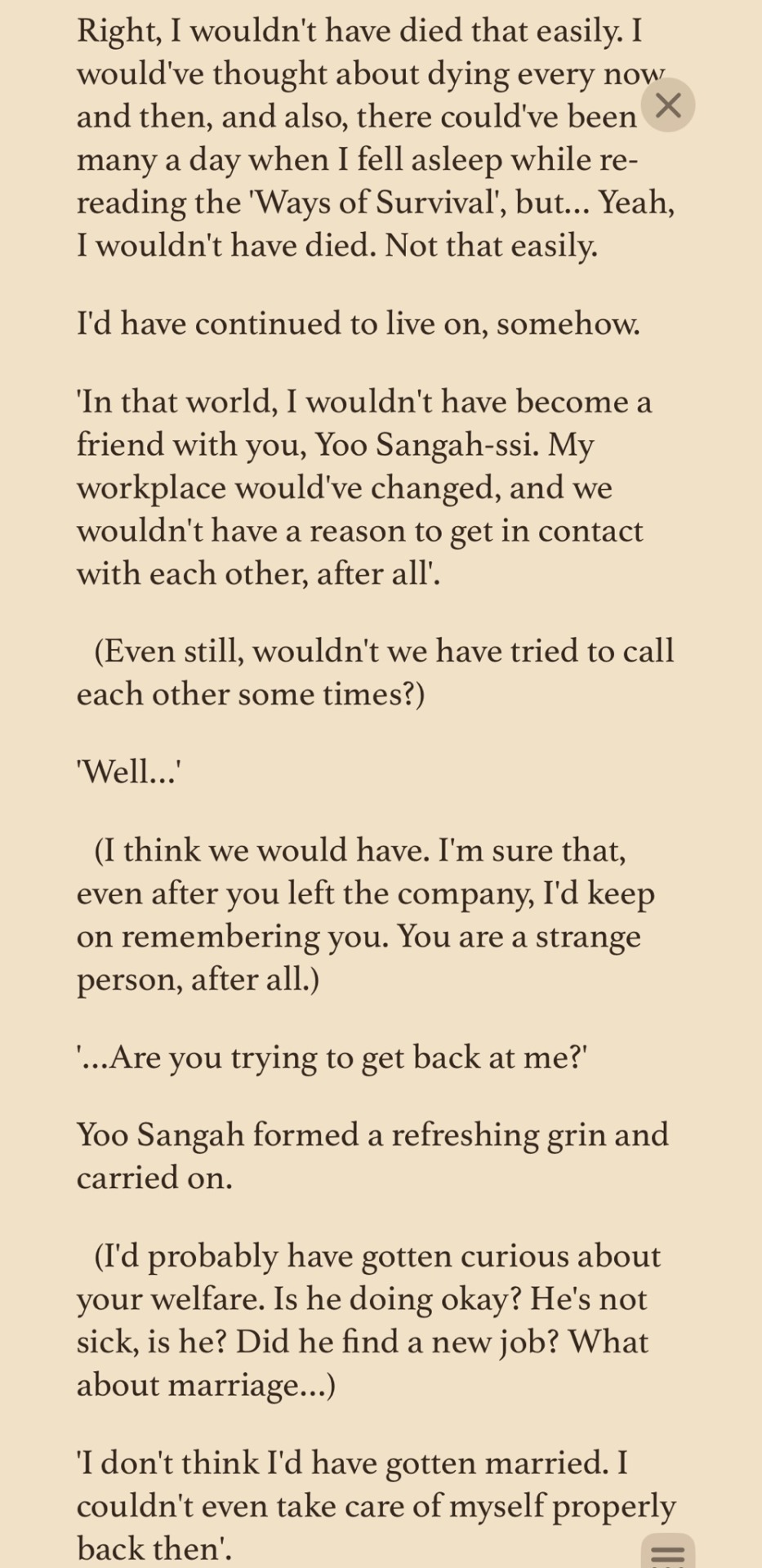
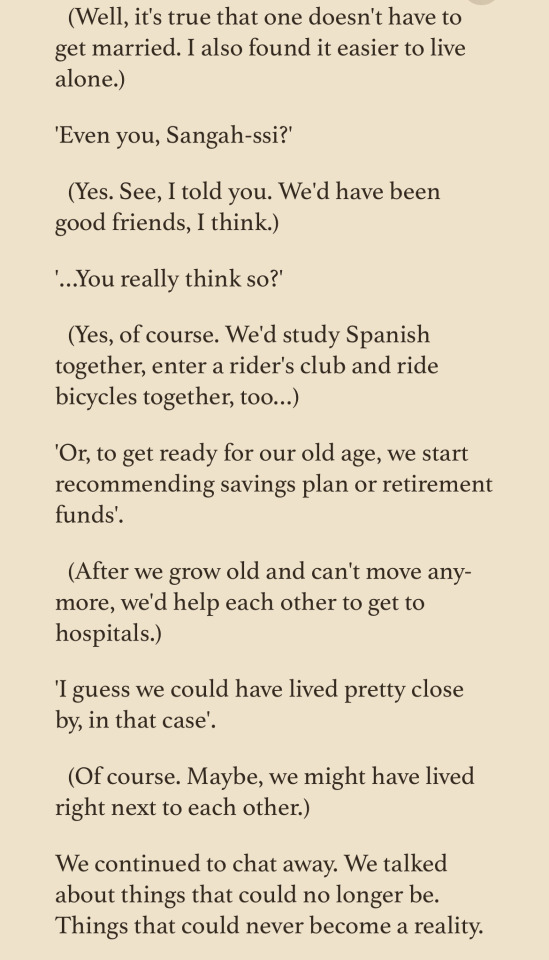

Even if TWSA had finished without the world ending, KDJ would have been okay









𖦹 Fantasy and literature in Artemis Fowl 𖦹
sources:
The Eternity Code- Eoin Colfer • The Last Guardian- Eoin Colfer • The Atlantis Complex- Eoin Colfer x 3 • The Last Guardian- Eoin Colfer • The Time Paradox- Eoin Colfer • The Atlantis Complex- Eoin Colfer
subjectdolly on Instagram • Punch and Judy- Jan Švankmajer • thehobbitchronicles on Tumblr • Hamlet- William Shakespeare (1915 W.G Simmonds Edition) • dawnpatrolkat on Pinterest • Love Among the Ruins- Edward Burne-Jones • vampyrdancer on Pinterest • mossabul on Pinterest
burning text gif maker
heart locket gif maker
minecraft advancement maker
minecraft logo font text generator w/assorted textures and pride flags
windows error message maker (win1.0-win11)
FromSoftware image macro generator (elden ring Noun Verbed text)
image to 3d effect gif
vaporwave image generator
microsoft wordart maker (REALLY annoying to use on mobile)
you're welcome










